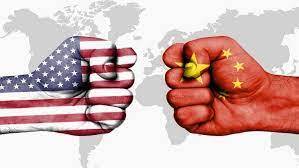
As US President Joe Biden signed an executive order to restrict certain American investments in sensitive high-tech sectors within China, the world witnessed yet another chapter unfolding in the intricate dance of global economic and geopolitical maneuvering. The move, targeting areas like semiconductors and artificial intelligence, highlights Washington's concern about China's access to critical technologies and its potential implications for national security.
However, this latest development is far from a unilateral action and must be understood within the broader context of global economic interdependence and strategic rivalry.
President Biden's executive order marks a significant shift in US policy, reinforcing his administration's commitment to safeguarding America's technological edge. The order is intended to mitigate the risk of US investments inadvertently aiding China's military modernization efforts. While the measure seeks to protect national security interests, it does so in a nuanced manner, focusing on specific sectors rather than an all-encompassing ban.
Critics argue that while the immediate economic impact might be limited, the indirect consequences could be more far-reaching. Emily Benson, Director of the Project on Trade and Technology at the Center for Strategic and International Studies, underscores the possibility of a chilling effect on bilateral investments.
Even though the targeted sectors might represent a small portion of the overall economic landscape, companies might reevaluate the nature of their investments due to the uncertainty surrounding such restrictions.
These restrictions come amid recent diplomatic engagements between the US and China, with high-level officials striving to stabilize the often-turbulent bilateral relationship. US Treasury Secretary Janet Yellen's visit to China underscored the US intention to implement targeted measures transparently, aiming to avoid broad-based impacts on the Chinese economy.
This stance aligns with the broader strategy of encouraging international allies to adopt similar restrictions, demonstrating the interconnectedness of global economic policies.
Indeed, international cooperation is crucial to the effectiveness of such measures. Nicholas Lardy, a senior fellow at the Peterson Institute for International Economics, emphasises the need for collaboration beyond US borders. With the share of foreign capital in China's recent investments standing at just one to two percent, the impact of unilateral US restrictions remain limited. To make a substantial impact, the involvement of other countries in similar policy regimes is essential.
The recent reports of a deal involving the US, the Netherlands, and Japan to restrict exports of advanced chip-making machinery to China highlight the broader collaborative efforts on this front. If realised, this deal would be a significant diplomatic achievement for the Biden administration, signaling its ability to rally allies around shared concerns. By extending export controls to allied nations, the US aims to reinforce the message that technological advancements should not inadvertently empower potential adversaries.
While the executive order and potential collaborations with allies send a clear signal, it is crucial to recognise that such restrictions represent only one facet of a multidimensional relationship. The US and China are not merely economic competitors; they are intertwined in a complex web of shared interests, global challenges, and regional dynamics. The pursuit of restrictions must be balanced with the need for cooperation in areas such as climate change, pandemic response, and regional stability.
China's response to these measures, labeling them as "anti-globalisation" and "de-sinicisation," underscores the sensitivities surrounding such policies. Balancing economic interdependence with national security imperatives requires nuanced diplomacy and careful communication. Ensuring that such measures do not inadvertently escalate tensions or hinder broader cooperation remains a paramount concern.
Moreover, as both nations navigate a complex array of challenges on the global stage, finding the delicate equilibrium between safeguarding national interests and nurturing collaborative efforts is a task that demands not only strategic acumen but also a profound appreciation for the intricate tapestry of international relations.
In conclusion, President Biden's executive order to restrict certain American investments in China's sensitive high-tech sectors highlights the intricate nature of modern geopolitics. While these measures are designed to protect national security and curb the unintentional advancement of potentially adversarial capabilities, they must be approached with an understanding of the broader economic and diplomatic landscape.
Balancing the pursuit of national security with the imperatives of global cooperation is a complex endeavor that requires the skillful navigation of international relationships, mutual interests, and shared challenges. As the US-China relationship continues to evolve, finding common ground while addressing strategic concerns will be the key to shaping a stable and prosperous global order.

